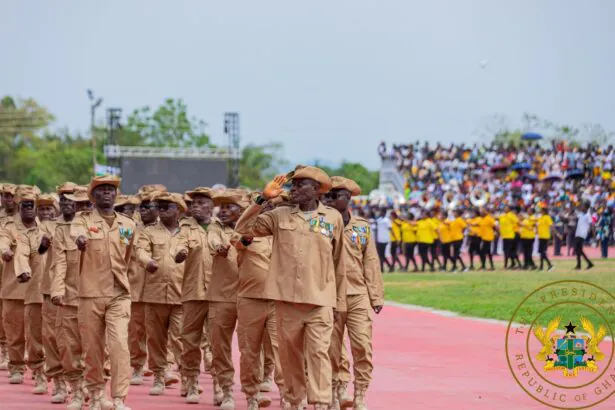Ghana’s surviving World War II veterans and their widows are relying on an annual grant of £110 (approximately GH¢1,800) from the British government, paid in biannual installments, to meet basic needs—a stark reminder of their decades-long struggle for recognition and support.
The Veterans Administration Ghana (VAG) revealed the arrangement, secured through the Royal Commonwealth Ex-Services League, as the nation marked the 77th anniversary of the 28th February Crossroads Shooting, a pivotal colonial-era protest where ex-servicemen demanding post-war benefits were killed by British forces.
Ex-Warrant Officer Bright Segbefia, VAG’s Public Relations Officer, lamented the veterans’ plight in a recent interview with 3FM, stressing that successive Ghanaian governments have failed to address their welfare. “These heroes were demobilized between 1945 and 1947, yet it took until seven years ago to secure this modest UK grant. While half a loaf is better than none, their survival should not hinge on foreign goodwill,” he said. Segbefia called for urgent government intervention to improve living conditions for the aging veterans, many of whom live in poverty despite their sacrifices.
Over 65,000 Gold Coast soldiers fought under British command during WWII, contributing to Allied victories in campaigns across Africa, Asia, and Europe. Yet, unlike veterans in former Allied nations, Ghana’s ex-servicemen returned to minimal pensions and scant social support. The £110 grant, while a lifeline, underscores systemic neglect—a sentiment echoed by Dr. Samuel Ayeh of the opposition National Democratic Congress (NDC), who urged renewed respect for the veterans’ legacy. “Their dedication built the foundation of this nation. We must ensure their sacrifices are honored with dignity, not left to foreign handouts,” he stated.
Critics argue Ghana’s failure to institutionalize veteran support reflects broader gaps in social policy. While the UK’s token payments acknowledge historical ties, they fall far short of addressing healthcare, housing, or inflationary pressures faced by veterans, most of whom are now in their late 90s or centenarians. Segbefia emphasized that even surviving spouses, who receive the same meager stipend, face dire conditions.
The VAG’s appeal coincides with rising public debates over national responsibility. Historians note that Ghana’s independence in 1957 did little to rectify colonial-era injustices, including unresolved promises of post-war compensation. As the last of these veterans fade into history, advocates warn that delaying action risks erasing their legacy entirely.
For now, the ball rests with Ghana’s policymakers. Will they step up, or let a generation’s valor be remembered only through fading photographs and £110 checks? The clock is ticking.
Send your news stories to newsghana101@gmail.com
Follow News Ghana on Google News


















